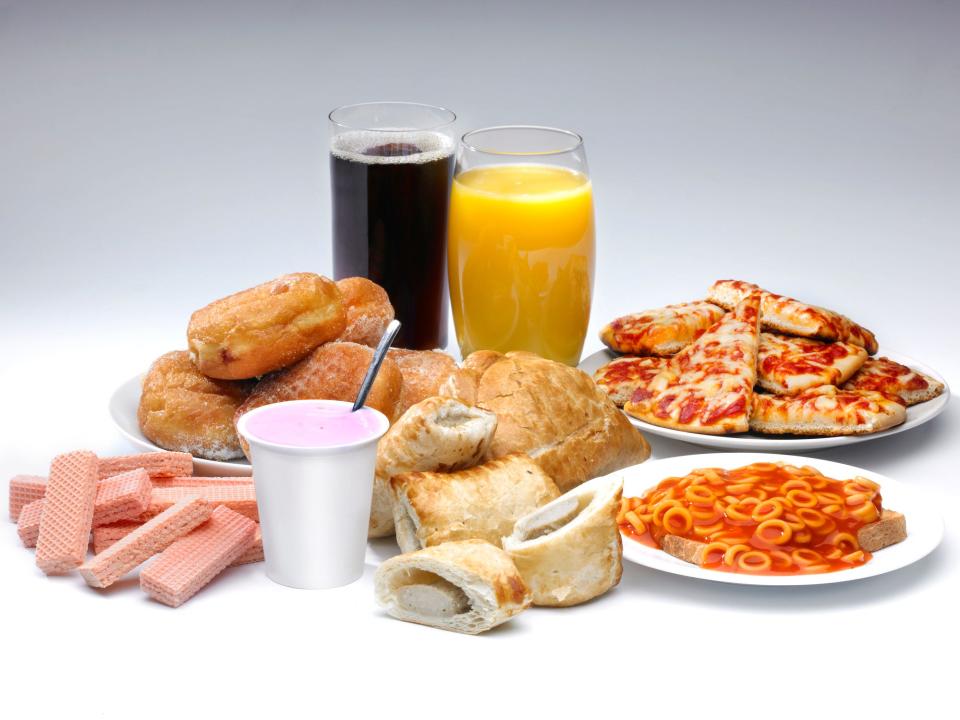How overconsumption of ultra-processed foods poses health risk | Mark Mahoney
The recent upward trend in obesity and other metabolic diseases in the U.S. are alarming. High consumption of ultra-processed foods has been linked to health concerns ranging from increased risk of obesity, hypertension, breast and colorectal cancer to dying prematurely from all causes.
One of the significant issues related to our deteriorating health is the increased consumption of ultra processed foods, an area of ongoing studies.

What are ultra-processed foods?
Ultra-processed foods are packaged foods that have been made by food companies using many manufactured ingredients, rather than actual foods. Those ingredients are combined in some way to make something that is edible, but it in no way maintains the integrity or nutritional content of the original foods.
What’s in ultra-processed foods?
Ultra-processed foods often contain added oils, fats, starches, protein substances or enzymes, flavorings and preservatives, and a lot of salt and sugar. Many of those ingredients, if you saw them on their own, would not resemble any kind of food. They are included to create textures or flavors that are highly palatable. Why worry about ultra-processed foods?
One reason ultra-processed foods likely contribute to health issues seems obvious: They tend to be low in fiber and high in calories, salt, added sugar and fat, which are all linked with poor health outcomes when eaten in excess.But back in 2009, researchers in Brazil proposed that it wasn't just the nutrients that made these foods unhealthy, but rather, the extent of processing these foods undergo.
First randomized controlled study on ultra-processed foods
Kevin Hall a senior investigator at the National Institutes of Health recruited 20 healthy adult volunteers to stay at an NIH facility for a four-week period. Participants were randomly assigned to either an ultra-processed or minimally processed diet for two weeks at a time, and then switched to the other diet for another two weeks.
Both diets consisted of three meals and a glut of snacks, providing almost 4,000 calories each day, and participants were told to eat as much or as little as they wanted.
In terms of their nutritional composition, the two diets were equivalent on almost every front, down to the average number of calories per gram of food. But while ultra-processed foods had no part in the unprocessed menu, they contributed more than 80 percent of the calories in the ultra-processed diet.
People also ate much faster when put on the ultra-processed diet, consuming 17 more calories per minute compared to the unprocessed diet. It takes a while for our brains to register the feeling of fullness, and this lag gives our mouths plenty of time to overeat — an easy thing to do with ultra-processed foods, which are often softer and easier to chew and swallow, Hall says.
But the work paid off. In the end, the only real difference between the groups was the proportion of ultra-processed foods in their diets.
The results took Hall by surprise. "I had sort of expected that … there wouldn't be any difference," says Hall. "But in fact, what we saw was that when they were on the ultra-processed diet, they were eating about 500 calories per day more than when they were on the unprocessed diet and they were gaining weight and gaining body fat" – they put on about 2 pounds on average. On the unprocessed diet, people ended up eating less and lost weight.
According to Ashley Gearhardt, a psychologist studying food addiction at the University of Michigan “I can’t think of another study that has been this well controlled for so long…That allows us to make much more confident interpretations of what these foods are really doing.” If Hall and his team saw clear differences in outcome, there would be a pretty clear culprit.
The findings from this study are the first to show there’s something inherent to ultra-processed foods, independent of nutritional makeup that seems to encourage overeating.
Some thoughts on putting limits on ultra-processed foods
Christopher Gardner of Stanford said that he'd prefer to focus the message on what people should be eating. "If you're going to tell them what to avoid, Americans are often clever enough to choose something else that's just as bad or worse," Gardner says.
Focus on eating a diet that's primarily plant-based – though that doesn't have to mean no meat whatsoever. And if you're considering eating a packaged food, read the ingredient list. "If you really have no idea what some of those ingredients are, it probably went too far," Gardner says.
According to Dr. Fang Zhan, a nutritional epidemiologist at the Friedman School of Nutrition Science and Policy at Tufts University who has studied the rise of ultra-processed consumption and correlated health risks, there is enough research linking ultra-processed foods to health issues that it makes sense to try to cut back on our consumption in general – especially when these foods are high in salt, sugar and fat.
Thanks to the MD Cancer Center (University of Texas) and NPR for much of the content provided in this column.
Additional Information/Resources
The study by Hall and colleagues was published in the Journal of Cell Metabolism and details are available at: Ultra-Processed Diets Cause Excess Calorie Intake and Weight Gain: An Inpatient Randomized Controlled Trial of Ad Libitum Food Intake: Cell Metabolism
A good synopsis of what ultra processed foods are and an explanation on their role in our health status is available through Harvard Health at health.harvard.edu.
Check out a YouTube documentary video, How Ultra-processed foods are slowly killing us at youtube.com
A recent program on National Public Radio titled, “What we know about the health risks of ultra-processed foods is available at Ultraprocessed foods dominate Americans' diets. Here's what they're doing to us : Shots - Health News : NPR

Mark Mahoney has been a Registered Dietitian/Nutritionist for over 35 years and completed graduate studies in Public Health at Columbia University. He can be reached at marqos69@hotmail.com.
This article originally appeared on Tallahassee Democrat: How overconsumption of ultra-processed foods poses health risk

